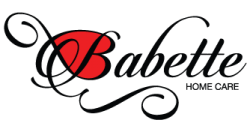
Becoming a Certified Nursing Assistant (CNA) is not only a rewarding career choice but also an essential role in the home care and healthcare industry. CNAs provide direct patient care, making them integral members of healthcare teams in hospitals, nursing homes, and various other healthcare and home care settings. Landing a job as a CNA requires dedication, training, and a strategic approach. This blog aims to provide a comprehensive guide to help you navigate the process and secure a fulfilling position as a CNA.
Step One: Understanding the role of a CNA
Before diving into the job search, it’s crucial to have a clear understanding of the responsibilities of a CNA. CNAs are the front lines of patient care, they assist patients and clients with their activities of daily living which includes bathing, dressing, feeding, and mobility. Additionally, CNAs also provide companionship and emotional support to patients and their families, making their role multifaceted and essential to quality patient care.
To become a CNA, you must complete a state-approved training program. These programs typically last between 4 to 12 weeks and include both classroom instruction and hands-on clinical experience. After completing the training program, you’ll need to pass a state competency exam to become certified. This exam evaluates your knowledge and skills in areas such as infection control, safety procedures, and patient care.
Step Two: Crafting an Impressive Resume
Once you have attained the necessary training and licensing to become a CNA, the next step is to market yourself to potential employers. Your resume and cover letter(optional) are your first impressions on potential employers. This entails creating a strong resume to show off not just your skills and qualifications but also your personality. Here are somethings to include on your resume when applying to caregiver positions:
- Certifications: Show off any certificates you hold. This is inclusive of BLS certification, CPR + First Aid Certification, and any relevant coursework you completed. Additionally, this would be a good place to include any specialties in certain types of care (i.e., wound care, pediatrics, hospice, Alzheimer’s/Dementia, etc.)
- Education: Include any education that you have completed: School Name(s), Dates of attendance and completion, and type of Degree. Please include advance degrees as well if you attained a MA, MA, BS, BA, BSN, MSN, etc.
- State Licenses: Include all the states which you are licensed to practice CNA work.
- Experience: Include a chronological timeline (most recent to oldest) of all the work/professional experience you have. This means including your position/job title, company name, date/duration of employment, and a brief description of your job responsibilities/duties. If you worked with a private client, feel free to leave out the name but include the dates that you have worked with such client. Additionally, if you held any management positions, this would be a good section for you to include such experience.
- Candidate Summary: This section is optional, however, including a brief summary about yourself certainly helps the potential employer in getting to know you. In this summary include exactly what makes you qualified for the job you’re interested in, share your career goals, and what motivates you.
Step Three: Navigating the Job Search
Once you have crafted your resume, it is time to start navigating the job market and getting your name out there. Start your search for CNA positions by utilizing online job boards, professional networking sites/events, healthcare and homecare staffing agencies, and reaching out to your CNA school for job opportunities.
Another great resource to utilize is your own network! Reach out to those you know who are currently CNAs and see if they would be open to being your referral to their employer. This will increase your chances in obtaining an initial interview.
Lastly, if you have your eyes set on working for a particular organization, do not hesitate in directly reaching out to them to inquire about openings. Even if they are not currently hiring, you will have introduced yourself and can follow up every now and then. When a position does open, you will be on their mind as one of the first candidates they reach out to.
Step Four: Preparing for Interviews
If you have reached this step of the process, congratulations! You are one step closed in the right direction. To keep the momentum going and to ensure you maximize on the opportunity to speak with the employer, please prepare for your interview!! You can do so by researching the company/facility and familiarizing yourself with their mission, values, and services.
Practice common interview questions and scenarios related to homecare and patient care. Be prepared with a few examples to share of your experience working with specific clients (i.e., challenging clients, good clients, clients with a specific disorder/illness)
Ahead of your interview, make sure that you are presentable and wearing smart, professional clothing. Employers want to know that you can present yourself well as you will most likely be the face of the company to the clients, so having a tidy appearance during the interview is crucial. Additionally, if you are conducting a virtual interview, please find a quiet environment for the interview as you do not want your background to become a distraction to both you and the interviewer.
Lastly, be prepared for a few questions to ask the interviewer. As much as they are interviewing you, you are also interviewing them as you want to determine if the position and company would be the best fit. Asking questions show that you are engaged in the conversation and in some sense, further expresses your interest in the position.
Step Five: During the Interview
At the time of your interview, please be punctual and arrive a few minutes ahead of the start time. This will show the employer that you are punctual, dependable, and that you respect their time. To an employer, one of the biggest disqualifiers is tardiness.
While interviewing, be yourself and show the employers who you really are. They can see your qualifications on your resume, so the interview gives them a chance to understand your personality. Be sure to remain professional and express enthusiasm in your interest. This is your time to shine!!
Step Six: Post-Interview
After your interview, send a thank you email to your interviewer. Depending on how your interview, and the timeline of the hiring process, some employers may take a few days to get back to you. If you do not hear back from them the following day, do not fret, wait up to 3-5 days before reaching out to inquire about next steps or a decision.
Landing a job as a Certified Nursing Assistant (CNA) requires dedication, training, and a strategic approach. By understanding the role of a CNA, obtaining the necessary education and certification, crafting an impressive resume, navigating the job search effectively, preparing for interviews, and demonstrating professionalism and enthusiasm, you can increase your chances of securing a fulfilling position in the homecare industry. As a CNA, you’ll have the opportunity to make a meaningful difference in the lives of clients and their families while embarking on a rewarding career path dedicated to caring for others.
Interested in working at Babette Home Care. Click here for our careers page and application.
Written by: Chloe C.
